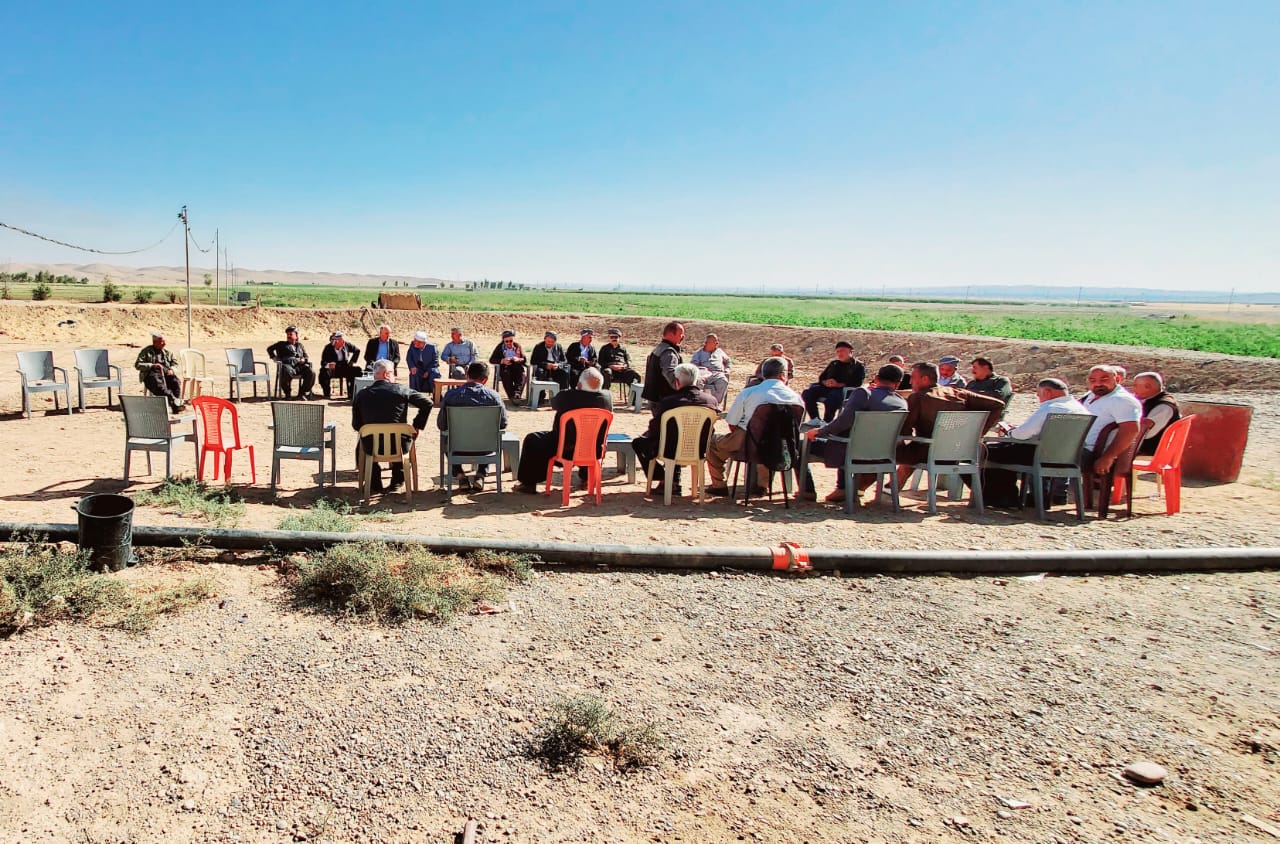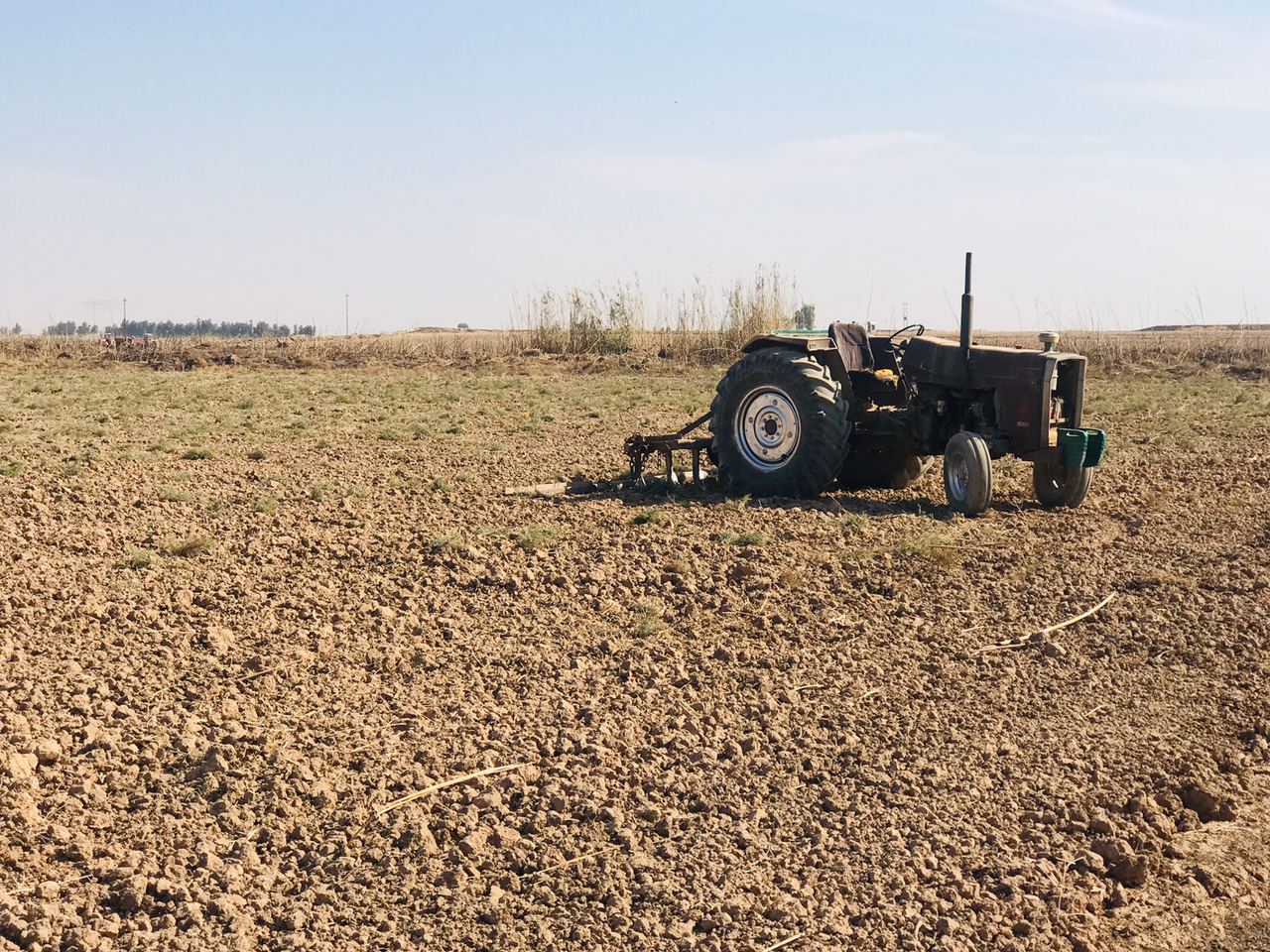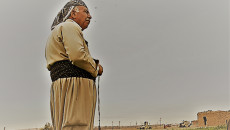Farmers in five Kurdish villages in a district of Kirkuk province say the Iraqi army has warned them not to plow their agricultural lands. This is due to complaints about the land by a number of imported Arabs.
According to KirkukNow reporters, the total area of the lands in the five villages of Palkana, Gabalak, Kharabarut, Sarbashakh and others shanagha in Sargaran subdistrict of Dubiz district are about 25,000 dunams (hectares).
Mohammed Ismail, a representative of farmers in Sargaran district, told KirkukNow that the Iraqi army has come to the villages and warned the farmers that they cannot plow the land.
"We have canceled the agricultural contracts of the Arab farmers. They have received money under Article 140 of the Iraqi constitution and have left Kirkuk for several years, but now they are returning from time to time and filing complaints."
Shakhawan Abdullah, the second deputy speaker of the Iraqi parliament, who is also a Kurdish representative of Kirkuk province, told the farmers that their problems have been resolved and they can go to plow their lands, but on Friday, November 4th yet the Iraqi army affirmed they cannot plant the lands.
"We have once again informed the second deputy speaker of the Iraqi parliament, who has held talks with Ali Freji so as not to prevent us," Ismail added.
The Iraqi army is partly responsible for the security of Kirkuk province and works under the command of joint operations.
Fireji was scheduled to visit the villages on Saturday, November 5, to meet and resolve the issue, but did not up to the present.

Part of Article 140 of the Iraqi Constitution deals with the issue of resolving the ownership of agricultural lands in the Kirkuk province, especially those lands distributed to Arab settlers originally from the middle and southern provinces of Iraq during the period of the Baath regime.
The return of Arab farmers and their quest to return to the use of agricultural lands in Kirkuk began after the events of October 16, 2017, when the Iraqi military and security forces returned to Kirkuk and the rest of the disputed territories and ousted the forces of the Kurdistan Regional Government KRG.
With the emergence of ISIS in 2014, and years before that, the Kurdish political parties and the Peshmerga were controlling Kirkuk and the disputed territories.
The disputed agricultural lands of expelled Kurdish and Turkmen farmers were distributed to the Arabs in the form of contracts per a decision of the Revolutionary Command Council of Ba'th Party chaired by Saddam Hussein which is valid up today since its abolition requires a counter law by the Iraqi parliament.
"We have returned to our land after 2003. When we returned, the Arab farmers left the area. If it is their property, why they left?" said Shukur Nazim, another farmer in the area.
"The problem is getting bigger. Arab officials are inclined towards Arabs and Kurds are inclined towards Kurds. This problem should be solved fundamentally. I think the solution to this problem is only money, not law” Nazim believes.
The problem is getting bigger, Arab officials are leaning towards Arabs and Kurds are leaning towards Kurds
The return of some of the Arab settlers who have contracts during the Ba'ath regime of Saddam Hussein, while each family received 20 million dinars IQD (17,000USD) to return to their homeland within the framework of the implementation of Article 140 of the Iraqi constitution.
KirkukNow could not get comment from the Arab farmers who were not in the area on Saturday, November 5th.
The return of the Arab farmers to their lands that previously had agricultural contracts, while the Iraqi Ministry of Justice, on September 23, 2020, sent a decision to seven Iraqi provinces, including Kirkuk, emphasizing the suspension of agricultural contracts by Baath party yet Kirkuk Agriculture Office refused to abide by it.
According to KirkukNow, the Joint Operations Command and some of the Kirkuk lawmakers are trying to find a solution to the problem.
Out of 42 Kurdish villages in Sargaran subdistrict, only these five villages have been warned to stop plowing their land, which is due in current autumn season.
Judge Qassim Muhammad, head of the Kirkuk Court of Appeal, said in an interview published on the website of the Supreme Judicial Council last December, about the disputes over the ownership of agricultural lands, “These agricultural contracts were previously concluded and blocked under the provisions of Article 140 of the constitution, but the owners of the frozen contracts can file lawsuits to annul it, as long as the person is an original resident of Kirkuk and has not previously received compensation under Article 140 of the Iraqi constitution."






